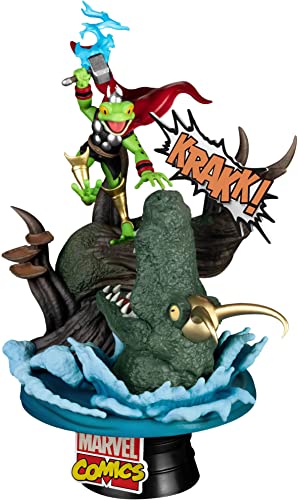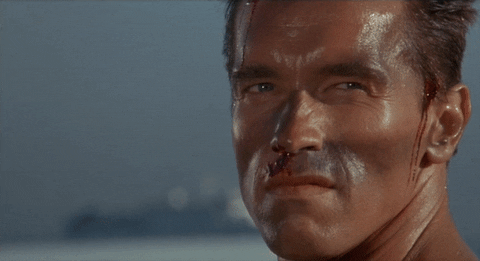"Kratos believes that being a god is a disease, and that rage is a side effect of that disease, and he’s terrified that he’s passed it on to his son.”
ADVERTISEMENT
This was a sentence I didn’t expect to hear about God of War 24 hours ago. But after its stunning reveal at Sony’s E3 2016 conference, I got a chance to see an extended version of that demo, and speak with Cory Barlog, the game’s creative director. After seven games set in Greece, seven games that told the story of a character who felt one-dimensional in his rage, and seven games that caused me to become apathetic towards the series, I am fully on-board for this new God of War.
I've always appreciated the combat and spectacle of the God of War games. The core trilogy remains some of the most influential action games of the past 15 years. But despite this, I've never been able to connect with the series, and I think that's because of Kratos himself. One of my biggest qualms with the prior GoW games is that Kratos himself just didn’t have the depth I wanted in a character. But that’s changing now.
"We’ve already told the story of The Hulk. We want to tell the story of Banner now,” Barlog told me after I watched the demo, and honestly, that sentence has me so incredibly excited for this game. I love the idea of a post-Last of Us Kratos who still retains his core tenets and traits, but suddenly has to deal wit the fact that he now has his own flesh-and-blood beside him at all times. Kratos has always been a character who’s made the wrong choices, and had to pay for the consequences of those mistakes. “What if he got a chance to do things differently?” Barlog told me. "To try to do things better?”
As we saw from the demo, the bond between Kratos and his son is at the heart of God of War. This is key throughout every moment of the game When his son gets nervous and misses a shot that should’ve killed a buck, Kratos begins to yell at him. Suddenly, a rage meter — generally used as a combat mechanic — appeared in the corner and began to rise and Kratos scolded the boy. But as the boy apologized and the God of War realized that he was overreacting, the rage meter subsided. This sort of subtle, contemplative detail was unexpected, but wholly appreciated.
While you assume complete control of Kratos, you also passively control his son throughout the entire game, and both characters grow and evolve. There’s a single button dedicated to your son, and its use depends on the context. He becomes an active participant in combat, traversal, exploration, and puzzle-solving. In this, the game is about passing knowledge onto your child. At the beginning of your journey, you teach a reluctant child how to fire a bow and hunt. As you progress through the game, that becomes second-nature to the boy, and it’s clear that your knowledge has been passed on.
This bond isn’t the only new, surprising element of God of War. The entire game is presented as a single, uninterrupted shot. Once you’re in, you’re in. No load screens, no cinematics, no fades to black. Kratos and his son’s journey across the world of Norse mythology -- which takes place an undisclosed amount of time past God of War III -- will be told in a wholly singular, and honestly unique manner.
Barlog explained, “There's a public perception that God of War is like your dad's muscle car. Not something I want to drive, but something he'd want to work on.” What might’ve worked back on the PS2 in terms of mechanics, characters, and storytelling simply don’t work in 2016. I love the idea that Barlog, who has been with the series since the start, and served as creative director on God of War II, isn’t afraid to flip the table over. “We need to tear it completely down and look at it from completely fresh eyes,” he said to me. This motto isn’t just in the story and characters, but in the mechanics and progression as well.
Right from the get-go, it was apparent that this was a very different God of War game. We now view the world from behind Kratos’ shoulders, with the previously-static camera now being controlled using the right stick. This part is important, because the world is rife with hidden paths, secret nooks, and collectables hidden all over the place. During my extended demo, we wandered off the beaten path and discovered a number of crafting resources, pieces of armor, and idols. God of War will feature larger, much more in-depth RPG systems, something Sony will discuss further down the road.
While the E3 demo was a quieter, more character-driven look at the game, Barlog assured me that the series isn’t shrugging off its bombastic, cinematic roots. The reason they didn’t focus the E3 demo on a huge, spectacle-filled set piece is that it's a given that the game will have those. Barlog and Sony Santa Monica have mastered those moments, so with this demo, they wanted to surprise fans and non-fans of the series with the unexpected.
"This game is about Kratos teaching his son how to be a god, and his son teaching Kratos how to be human again.” That’s not a sentence I expected to hear about God of War 24 hours ago, but here we are, and I couldn’t be happier about it.
















